Taking Ownership
Swarthmore students and alumni reflect on their entrepreneurial journeys
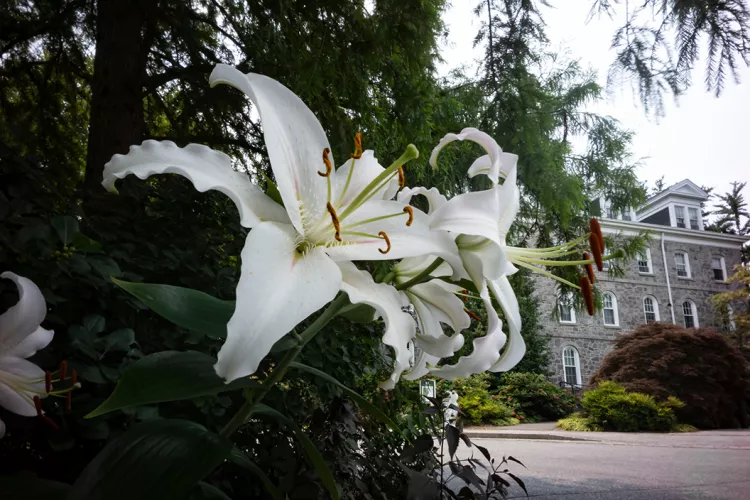
Entrepreneurship may not be one of the first things to spring to mind with the liberal arts, but it’s becoming increasingly important to the fabric of Swarthmore.
Buoyed by the College’s emphasis on social entrepreneurship — loosely defined as doing good by doing well — more and more students and alumni are taking ownership of their career paths. But that seemingly DIY approach need not stray from the College’s core values; these Swatties deeply value collaboration, interdisciplinary studies, and the common good.
Here, one current student and three recent graduates reflect on their journeys as entrepreneurs — what that term means to them, what they have found most rewarding and most challenging, what aspects of their Swarthmore experience best prepared them, and more.
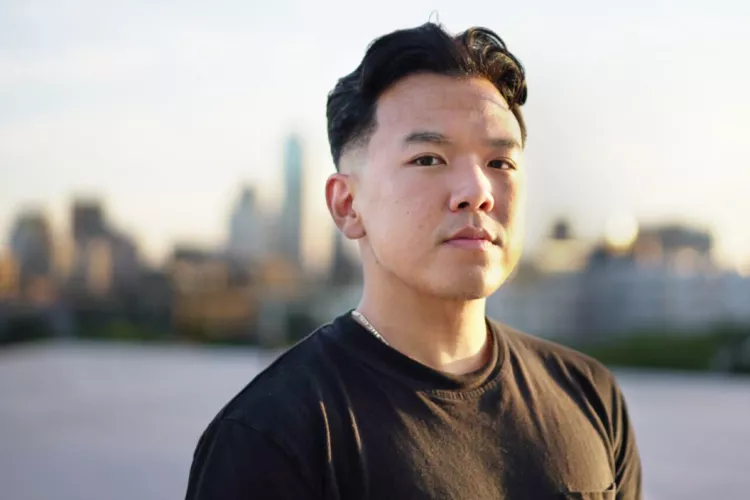
"Entrepreneurship represents freedom," says John Lim '16.
Lim was named to Forbes Magazine’s 30 Under 30 List for 2022. He is the creator of a best-selling card game, as well as a game for cannabis users through UGLY LLC, an independent operation catering to underrepresented communities. Lim also started the fundraising project that raised money for COVID-19 relief. At Swarthmore, Lim co-founded a late-night quesadilla delivery business and created the popular Sharples Cookbook web series.
What does entrepreneurship mean to you?
Entrepreneurship represents freedom. In the ’80s, my parents immigrated to New York City from rural South Korea in their early 20s, with no knowledge of the language and without a college degree. To make ends meet, they started a small business, a fruit bodega. It was by no means the most glamorous lifestyle — they would be up at 5 a.m. and work most holidays — but they were able to provide a comfortable life for my two sisters and me. To this day, I carry their entrepreneurial spirit and seek to use entrepreneurship as a way to provide freedom for those I care for deeply.
What was your vision for UGLY, and what were the keys to carrying it out?
I didn’t have a grand vision for UGLY at its inception, and I actually think the limited scope of my initial goals was instrumental in creating momentum. Rather than focusing on a goal that would’ve seemed impossible at the time, I was able to focus on incremental milestones that were challenging but still felt achievable. This reduced the perceived stakes and allowed me to pursue a more inherently risky career path with fearlessness, a quality that I believe every entrepreneur should have.
What have you found most rewarding?
As a freshman at Swarthmore, I remember the feeling of leaving my first seminar with upperclassmen — impostor syndrome! I questioned whether I belonged and frequently wondered if I’d be able to meaningfully impact the world. I’m not here to say that creating UGLY was some world-changing moment, but I’ve found that successfully launching this company has given me a level of confidence that I’m grateful for.
What has been your biggest challenge?
The biggest challenge is to last. Truly successful companies last decades through deft strategic changes provided by the CEO’s foresight. My worldview has to be correct consistently through time, which is only proven through hindsight. It’s a Catch-22 that’s both very challenging and exciting.
What aspect(s) of your Swarthmore experience best prepared you?
I’ve always appreciated the focus on an interdisciplinary approach to learning. As an economics major and environmental studies minor, I was always fascinated by how ideas from biology, economics, religion, etc., intertwined in unexpected ways, providing a level of understanding in each subject that I wouldn’t otherwise have if I hadn’t been in that academic environment. At the end of the day, entrepreneurship is about solving problems. This interdisciplinary approach to learning has given me the ability to be open-minded about the unconventional ways a problem can be solved.
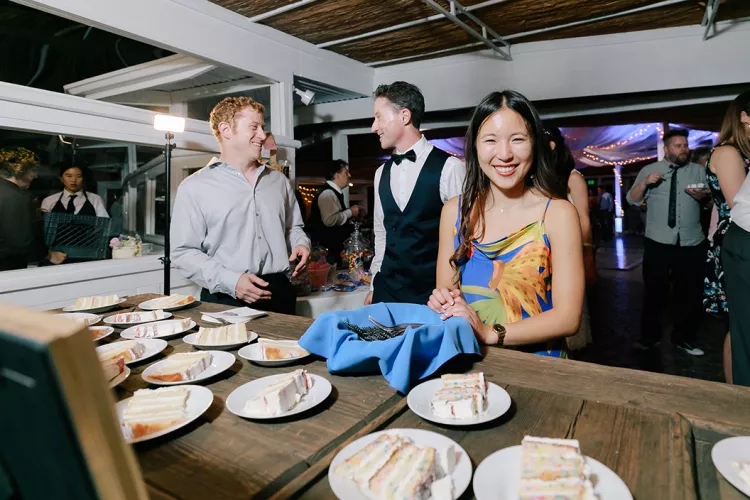
"Toscah Bakery is the embodiment of my dearest passions: food, science, and education," says Therese Ton '19.
Ton is a program manager in the biotech space for Astria Therapeutics and the owner of Toscha Bakery. Ton started the artisanal, small-batch baking business at Swarthmore before expanding into Philadelphia, Boston, and Cambridge, Mass. The bakery specializes in desserts inspired by French, Italian, and Vietnamese cuisine. Ton adorns all of her specialty cakes with fresh, organic flowers sourced from local providers and prides herself on handcrafting elegant and rustic culinary pieces. While at Swarthmore, Ton discussed her interest in the intersection of baking and STEM education in the Bulletin.
What does entrepreneurship mean to you?
Entrepreneurship meant leaving behind my aspirations of pursuing a career in medicine and starting a baking business out of my college dorm kitchen during my sophomore year at Swarthmore. It’s taking the risk to be the chef de cuisine of your career. You have complete creative freedom to curate a menu that embodies your passions and identity, but you are also responsible for learning how to create dishes that are both within financial constraints and make the necessary profit to keep the business alive. The chef de cuisine must also learn how to be a team leader, managing and delegating tasks to their squad of sous chefs and cooks, just like any business owner. The journey of entrepreneurship gives you as much dopamine as it does cortisol — it is as incredibly thrilling as it is unbelievably stressful. However, if you can endure the hardships of entrepreneurship, it makes the taste of success that much sweeter.
What was your vision for Toscah Bakery, and what were the keys to carrying it out?
Toscah Bakery is the embodiment of my dearest passions: food, science, and education. For context, I am a biologist by training, a project manager in the pharmaceutical industry by profession, and a baker and home cook by choice. I intend Toscah Bakery to be a brick-and-mortar bakery and café with a teaching kitchen that offers baking and cooking classes teaching the science behind my desserts and baked goods. Because the bakery was originally inspired by my Vietnamese aunt and Italian uncle, Anh and Rick, I intend to curate a selection of beautiful, delicious pastries, baked goods, and dishes that showcase Viet-Euro flavors. One order I’m already set on selling at the first Toscah storefront is “The Anh & Rick,” a Vietnamese drip coffee served with our family’s renowned soft-baked biscotti made with apricots, cranberries, and pistachios.
As a first-generation immigrant coming from a low-income background, I realized I need to take control of my personal finances to be in the best position to run Toscah Bakery. I dedicated much of my time in the past two years to educating myself in that area. And throughout this journey, I noticed the unbelievable lack of financial educational resources for or by BIPOC, immigrant, and queer communities and sought out opportunities to close this gap. I found one at The Theater Offensive, a nonprofit at which I now serve as a financial educator for emerging LGTBQ+ artists of color.
What have you found most rewarding?
Self trust. Because I was my own boss, I learned how to hold myself accountable. Going through those experiences as a small business owner taught me that I can trust making the best decisions for myself. It gave me the confidence to take tangible steps toward my dreams.
What was your biggest challenge?
Learning how to build more passive streams of income. Especially after COVID-19 hit, I learned that I need to expand my revenue sources outside of private orders, farmers' markets, and pop-up restaurant events. Like many other small business owners responding to COVID, I’m learning how to adapt and pivot to a more digital landscape. This year, I’m working on creating monetizable content such as recipe videos, cooking and baking tutorials, and a digital recipe book to be published on social media platforms like Instagram, TikTok, YouTube, and my business website.
What aspect(s) of your Swarthmore experience best prepared you?
The interdisciplinary liberal arts education gave me lifelong professional flexibility. Being exposed to so many different schools of thought at Swarthmore nurtured rich critical-thinking and problem-solving skills in multiple contexts. I’ve been able to apply these skills in all my professional pursuits, from being a cardiac research associate at the Broad Institute to being a project manager at an allergy and immunology biopharmaceutical company to being a small business owner. I feel prepared to pivot toward different industries if I choose to do so, which gives my future self the freedom to reinvent myself professionally.
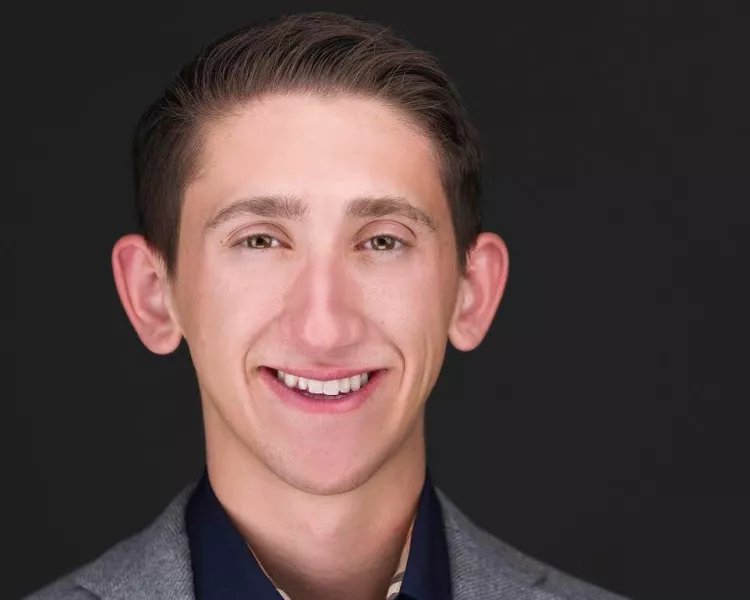
"An entrepreneur always has an eye toward problem solving to address any host of inefficiencies that individuals face on a daily basis," says Chris Gaeta '23.
Gaeta was named to the top Gen Z Venture Capitalist list by Business Insider. He is a first responder, COVID-19 researcher, and specialist in healthcare start-ups for VU Venture Partners. Most recently, Gaeta founded Grapefruit, a company aiming to expand COVID-19 testing at school districts, summer camps, businesses, and nonprofits; to date, the company has facilitated the testing of hundreds of thousands of patients. The economics major from Lincroft, N.J., is also pursuing a master’s in neuroscience and medical ethics at The University of Pennsylvania School of Medicine.
What does entrepreneurship mean to you?
Entrepreneurship spans a wide spectrum of innovative thought processes. An entrepreneur always has an eye toward problem solving to address any host of inefficiencies that individuals face on a daily basis.
What was your vision for Grapefruit, and what were the keys to carrying it out?
We set out to bridge the gap between COVID-19 testing and contact tracing, originally in the summer camp space. We have since expanded to become one of the fastest-growing startups in the mid-Atlantic region, with more than 150 full-time employees and 300 advanced practitioners on staff. The medical team continues to focus on our core mission of delivering best-in-class health care access to campus-based settings (K–12 schools, nonprofit organizations, and other congregated settings) through omnichannel care modalities. Grapefruit takes a simple and sweet approach to wellness that leverages telehealth, laboratory testing, and infectious disease contact tracing to our partners.
What have you found most rewarding?
The dozens of phone calls and letters from patients thanking us for offering our school-based solutions to their communities. Everything from saving thousands of school days through our testing programs in schools to offering peace of mind to patients that would otherwise be unable to afford or obtain a medical consult stands at the top of mind for the most rewarding experiences.
What was your biggest challenge?
With the omicron surge over the holiday season, we experienced unprecedented increases in testing volumes — nearly a five time increase in what we expected during the holiday season. Balancing the safety of our frontline staff who were continually exposed to COVID-19 with meeting the needs of the public proved an operational challenge that the team responded to with impressive teamwork and like-minded passion to serve in the best interest of the community public health.
What aspect(s) of your Swarthmore experience best prepared you?
My time at Swarthmore has influenced my path for Grapefruit to become a leader in the campus wellness space. My time as a co-captain of the golf team coupled with courses from Professors Syon Bhanot and Mark Wallace (in the economics and religion departments, respectively) shaped my interests and skill sets to equip me to lead Grapefruit. Swarthmore alumni have also been instrumental in the growth of the company. Ted Chan ’02 is a former founder in the medical technology space and currently serves as Grapefruit adviser, among other alumni who have offered insights.
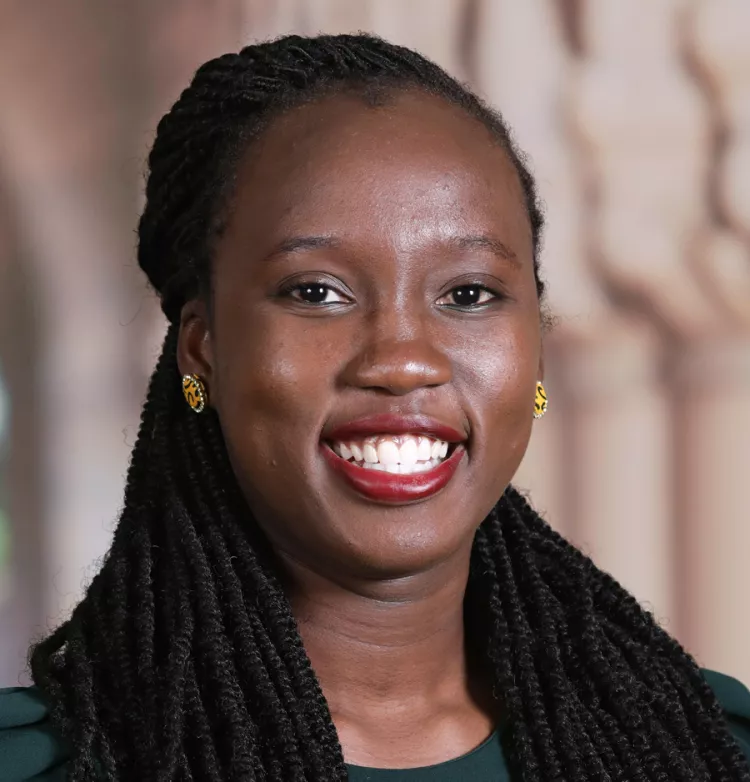
"My liberal arts education provided the toolkit I needed to navigate a multidisciplinary world," says Sedinam Worlanyo '17.
Worlanyo explores the cross-section between learning, design, and technology. She is currently a user experience (UX) researcher for Coursera in the San Francisco bay area. Previously, she worked as a platform and product manager, software engineering, and business developer, and has founded social change organizations. At Swarthmore, Worlanyo co-founded the student-run company that won the 2016 SwatTank Innovation Competition, and last year she facilitated a workshop and online module on storytelling and entrepreneurship at the College’s Center for Innovation and Leadership (CIL).
What does entrepreneurship mean to you?
When I began businesses in college, I thought entrepreneurship was only about being able to say “I started X.” However, over time, my definition expanded. Entrepreneurship for me is not only about the excitement of starting a new company, but also the discipline, support, and consistency required to sustain it.
What was your vision for your first enterprise, and what were the keys to carrying it out?
At Swarthmore, I started a backpack company focused on connecting local artisans in Ghana to the global marketplace. I had the vision for what it could be and recruited a team and we brought the idea to life. I quickly realized that starting a social enterprise was only the beginning of the work. It was one thing to start, but it was another thing entirely to coordinate logistics, figure out quality assurance, and manage a team, all the while balancing my computer science labs.
What has been the throughline of experiences?
Education has always been a key area of interest for me. In my previous roles, I've designed online learning experiences in partnership with various international development organizations. These courses reached millions of people around the world. Technology enabled our global reach and we worked together with effective instructional design and facilitation to create the learner impact. As I’ve gone further in my career, I’ve worn different hats (from software engineering to product design to being an educator), and I better understand how the different aspects of learning, design, and technology intersect to contribute to learner impact. In my current work at Coursera, I conduct product research with our learners and educators, and I’ve grown to appreciate the need for cross-functional collaborations across our technological product, learners and educators.
What aspect(s) of your Swarthmore experience best prepared you?
My liberal arts education provided the toolkit I needed to navigate a multidisciplinary world. I took various classes, from art to computer science to international politics, which helped me empathize and understand different perspectives in and outside the workplace. I wasn’t siloed in a specific field, and that shaped how I’m able to learn and work with anyone. My Swarthmore experiences taught me about leadership; it’s where I initiated a lot of things. I organized events for our African students community, served as a Student Academic Mentor, and started my social change organizations through SwatTank [which celebrates its 10th anniversary this year] and the Lang Opportunity Scholarship. At Swarthmore, I had the resources to bring my ideas to life.



